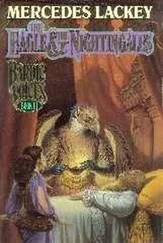George Eggleston - Red Eagle and the Wars With the Creek Indians of Alabama.
Здесь есть возможность читать онлайн «George Eggleston - Red Eagle and the Wars With the Creek Indians of Alabama.» — ознакомительный отрывок электронной книги совершенно бесплатно, а после прочтения отрывка купить полную версию. В некоторых случаях можно слушать аудио, скачать через торрент в формате fb2 и присутствует краткое содержание. Жанр: foreign_prose, на английском языке. Описание произведения, (предисловие) а так же отзывы посетителей доступны на портале библиотеки ЛибКат.
- Название:Red Eagle and the Wars With the Creek Indians of Alabama.
- Автор:
- Жанр:
- Год:неизвестен
- ISBN:нет данных
- Рейтинг книги:4 / 5. Голосов: 1
-
Избранное:Добавить в избранное
- Отзывы:
-
Ваша оценка:
- 80
- 1
- 2
- 3
- 4
- 5
Red Eagle and the Wars With the Creek Indians of Alabama.: краткое содержание, описание и аннотация
Предлагаем к чтению аннотацию, описание, краткое содержание или предисловие (зависит от того, что написал сам автор книги «Red Eagle and the Wars With the Creek Indians of Alabama.»). Если вы не нашли необходимую информацию о книге — напишите в комментариях, мы постараемся отыскать её.
Red Eagle and the Wars With the Creek Indians of Alabama. — читать онлайн ознакомительный отрывок
Ниже представлен текст книги, разбитый по страницам. Система сохранения места последней прочитанной страницы, позволяет с удобством читать онлайн бесплатно книгу «Red Eagle and the Wars With the Creek Indians of Alabama.», без необходимости каждый раз заново искать на чём Вы остановились. Поставьте закладку, и сможете в любой момент перейти на страницу, на которой закончили чтение.
Интервал:
Закладка:
Then Tecumseh opened his lips. Calling the people together, he made them a speech, setting forth his views and urging them upon the Creeks. He told them that the red men had made a fatal mistake in adopting the ways of the whites and becoming friendly with them. He exhorted them to return at once to their former state of savagery; to abandon the ploughs and looms and arms of the white men; to cast off the garments which the whites had taught them to wear; to return to the condition and customs of their ancestors, and to be ready at command to become the enemies of the whites. The work they were learning to do in the fields, he said, was unworthy of free red men. It degraded them, and made them mere slaves. He warned them that the whites would take the greater part of their country, cut down its forests and turn them into cornfields, build towns, and make the rivers muddy with the washings of their furrows, and then, when they were strong enough, would reduce the Indians to slavery like that of the negroes. There is every reason to believe that Tecumseh was convinced of the truth of all this. He was convinced, too, that the whites had no right to live on this continent. He told the Creeks, as he had told General Harrison, that the Great Spirit had given this land to the red men. He said the Great Spirit had provided the skins of beasts for the red men's clothing, and that these only should they wear. Then he came to the subject of the British alliance, telling the Creeks that the King of England was about to make a great war in behalf of his children the red men, for the purpose of driving all the Americans off the continent, and that he would heap favors upon all the Indians who should help him to do this.
A prophet who accompanied Tecumseh followed him with a speech, in which he reiterated what his chief had said, but gave it as a message from the Great Spirit; still further to encourage the war spirit among them, this teacher by authority promised a miracle in behalf of the Creeks. He assured them that if they should join in the war they would do so at no personal risk; that not one of them should be hurt by the enemy; that the Great Spirit would encircle them wherever they went with impassable mires, in which the Americans would be utterly destroyed, with no power or opportunity to harm the divinely protected Indians.
All this was well calculated to stir the already moody and discontented Creeks to a feeling of hostility, and when the speech-making was over there was a strong party, probably more than a majority of the Creeks, ready and anxious to make immediate war upon the Americans. Colonel Hawkins's long labors in the interest of peace had been rendered fruitless, and the war party in the nation was more numerous and more firmly resolved upon mischief than ever.
Tecumseh's labors were not yet finished, however. As a shrewd politician works and argues and pleads and persuades in private as well as in his public addresses, so Tecumseh, who was a particularly shrewd politician, went all through the nation winning converts to his cause. He won many, but although he was received as an honored guest by the chief Tustinnuggee Thlucco, or the Big Warrior, he could make no impression upon that wise warrior's mind. It was not that Big Warrior was so firm a friend to the whites that nothing could arouse him to enmity. He had his grudges, and was by no means in love with things as they were; but he foresaw, as Tecumseh did not, that the war, if it should come, would bring destruction to his nation. He estimated the strength of his foes more accurately than his fellows did, and was convinced that there was no hope of success in the war which Tecumseh was trying to bring about. He was valorous enough, but he was also discreet, and he therefore obstinately remained true to his allegiance. His obstinacy at last roused Tecumseh's ire, and it was to him that Tecumseh made his celebrated threat that when he reached Detroit he would stamp his foot on the ground and shake down all the houses in Tookabatcha – a threat which it is said that an earthquake afterward led the Creeks to believe he had carried out. The story of the earthquake is repeated by all the writers on the subject, but some of the accounts of it contradict facts and set dates at defiance; and so, while it is not impossible and perhaps not improbable that an opportune earthquake did seem to make Tecumseh's threat good, the story must be received with some caution, as the different versions of it contradict each other. So, for that matter, it is not safe to trust the records upon any point, without diligent examination and comparison. Thus the fact that the battle of Tippecanoe was fought during this Southern journey of Tecumseh makes it certain that the mission was accomplished in the year 1811; yet Pickett, in his History of Alabama, gives 1812 as the year, and several other writers follow him. Again, some of the writers to whom we must look for the facts of this part of American history confound Tecumseh's two years' sojourn among the Creeks about the year 1787 with his visit in 1811, saying that that visit lasted two years – a statement which would make great confusion in the mind of any one familiar with the history of events in the North in which Tecumseh bore a part. A careful comparison of dates shows that Tecumseh started to the South in the spring of the year 1811, and returned to the North soon after the battle of Tippecanoe was fought – that is to say, near the end of the same year.
CHAPTER V.
RED EAGLE AS AN ADVOCATE OF WAR – THE CIVIL WAR IN THE CREEK NATION
We have called Tecumseh a wily politician, and in whatever he undertook his methods were always those of the political manager. He was quick to discover the temper of individuals as well as of bodies of men, and he was especially shrewd in selecting his agents to work with him and for him. He was not long in picking out Red Eagle as the man of all others likely to draw the Creeks into the scheme of hostility. Red Eagle's tastes and temper, as we have already seen, were those of the savage. He was a rich man, and had all the means necessary to the enjoyment of those sports and pastimes which he delighted in; but above all else he was an Indian. He looked upon the life of the white men with distaste, and saw with displeasure the tendency of his people, and more especially of his half-breed brothers, to adopt the civilization which he loathed. Moreover, he cherished a special hatred for the Americans – a hatred which his uncle and tutor, General McGillivray, had sedulously instilled into his mind in his boyhood; and this detestation of the Americans had been strengthened by the British and Spanish at Mobile and Pensacola, during his frequent visits to those posts. His favorite boast was that there was "no Yankee blood in his veins."
Besides his prejudice, Red Eagle's judgment taught him to fear the encroachments of the Americans, and men are always quick to hate those whom they fear. Red Eagle saw with genuine alarm that the white men were rapidly multiplying in the Tombigbee country, and he knew that the Americans had made acquisitions of new territory which would still further invite American emigration into the neighborhood of the Creek Nation. All this he saw with alarm, because he was convinced that it boded ill to his people. With many others he feared that the race which held black men in a state of slavery would reduce red men to a similar condition as soon as their own numbers in the country should be great enough to render resistance useless. Convinced of this, Red Eagle believed that it was the part of wisdom to make a fight for freedom before it should be forever too late.
Tecumseh, finding in the young chief a man of the highest influence in the nation, whose prejudices, fears, and judgment combined to make him an advocate of war, took him at once into his councils, making him his confidant and principal fellow-worker. Red Eagle eagerly seconded Tecumseh's efforts, and his influence won many, especially of the young warriors, to the war party in the nation. His knowledge of the Creeks, too, enabled him to suggest methods of winning them which his visitor would not have thought of, probably. One of these was to work directly upon their imaginations, and to enlist their superstition on the side of war through prophets of their own, who, by continuous prophesyings, could do much to counteract the influence of the older Creek chiefs, most of whom were attached to the Americans, and being well-to-do were opposed to war, which might lose them their houses, lands, cattle, and negro slaves. The possession of property, even among partly savage men, is a strong conservative influence always.
Читать дальшеИнтервал:
Закладка:
Похожие книги на «Red Eagle and the Wars With the Creek Indians of Alabama.»
Представляем Вашему вниманию похожие книги на «Red Eagle and the Wars With the Creek Indians of Alabama.» списком для выбора. Мы отобрали схожую по названию и смыслу литературу в надежде предоставить читателям больше вариантов отыскать новые, интересные, ещё непрочитанные произведения.
Обсуждение, отзывы о книге «Red Eagle and the Wars With the Creek Indians of Alabama.» и просто собственные мнения читателей. Оставьте ваши комментарии, напишите, что Вы думаете о произведении, его смысле или главных героях. Укажите что конкретно понравилось, а что нет, и почему Вы так считаете.












